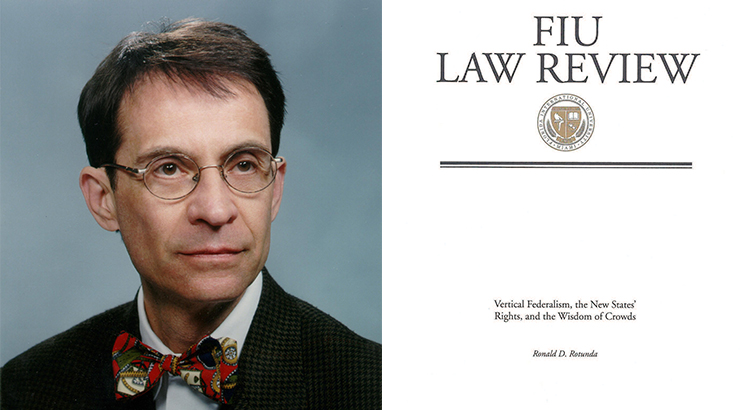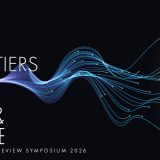
Fowler Law Professor Ronald Rotunda Publishes “Vertical Federalism, the New States’ Rights, and the Wisdom of Crowds”
August 23, 2016
Chapman University Dale E. Fowler School of Law Professor Ronald Rotunda’s article “Vertical Federalism, the New States’ Rights, and the Wisdom of Crowds” was recently published as part of a symposium in Volume 11 of the Florida International University Law Review.
From the abstract:
The framers were concerned that the rights found in the Constitution were mere statements — “parchment barriers” — that would not be enough to protect the people from the abuse of power. Thus, they sought to control power by separating it. This separation of powers within the federal government is not the only method the framers designed to preserve liberty. They also embraced another form of Newtonian mechanics to balance power and thus preserve liberty — what we may call vertical separation — using the states to check the power of the federal government. The states, no less than the three branches on the federal level, protect the liberty of the people by dividing power between the federal and the state governments.
Vertical federalism protects our liberties and makes us the envy of the world, first, because the states are an important counterbalance to the federal government. The framers used power to limit power. Second, because when the independent states go their independent ways they implement what the economists call the “wisdom of crowds.”
Ronald D. Rotunda is the Doy and Dee Henley Chair and Distinguished Professor of Jurisprudence at Chapman University Dale E. Fowler School of Law. Prior to joining Chapman in 2008, he was a University Professor and Professor of Law at George Mason University School of Law and the Albert E. Jenner, Jr. Professor of Law at the University of Illinois, where he served for 28 years. He clerked for Judge Walter R. Mansfield of the United States Court of Appeals for the Second Circuit and practiced law in Washington, D.C., where he served as assistant majority counsel for the Watergate Committee. He earned a Bachelor of Arts from Harvard University and a JD from Harvard Law School, where he was a member of the Harvard Law Review.
He has co-authored the most widely used course book on legal ethics, Problems and Materials on Professional Responsibility (Foundation Press), and is the author of a leading course book on constitutional law, Modern Constitutional Law (West Publishing Co.). He is also the co-author of Legal Ethics: The Lawyer’s Deskbook on Professional Responsibility (ABA-West Group), the seven-volume Treatise on Constitutional Law (West Publishing Co.), and Treatise on Constitutional Law (West Publishing Co.). He has written several other books and more than 350 articles in various law reviews, journals, newspapers, and books in this country and in Europe. His works have been translated into French, German, Romanian, Czech, Russian, Japanese, and Korean. These books and articles have been cited more than 1,000 times by state and federal courts at every level, from trial courts to the U.S. Supreme Court. He has served as Commissioner of the Fair Political Practices Commission and has been a Distinguished International Research Fellow at the World Engagement Institute.

